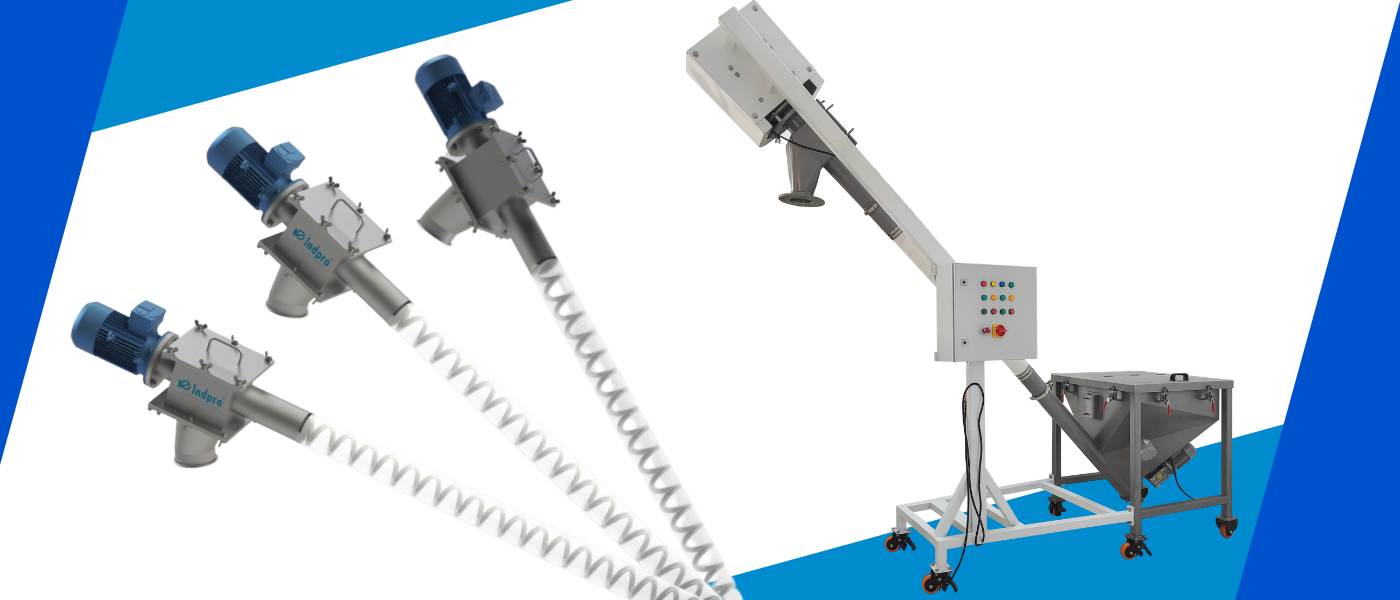- Home
- Products & Solutions
- Business Area
- Applications
- Services
- Company
- Blog
- Contact Us

Indpro
Typically replies within an hour
When selecting a flexible screw conveyor, it is important to consider the following factors in more detail:

The type of material being conveyed, including its bulk density, particle size, and abrasiveness, can affect the design and configuration of the conveyor. For example, materials with a high bulk density will require a more powerful motor to move the material as compared to one with a low bulk density. Similarly, abrasive materials will require a conveyor with harder wearing components such as the screw and tubing. The particle size of the material will help determine the size of the inlet and outlet openings and the type of screw to use.
The required conveying rate, typically measured in cubic feet per hour or pounds per hour, will help determine the size and power of the conveyor. This will help to select the right size of the screw, drive motor and the gearbox.
The distance the material needs to be conveyed, including any vertical or horizontal distances, will help determine the length of the conveyor and the required power to move the material. Longer conveyors will require a more powerful motor to move the material over the longer distance.
The conditions under which the conveyor will be operating, such as temperature, humidity, and exposure to chemicals, will help determine the materials of construction and any necessary seals or coatings. For example, if the conveyor is used in a high temperature environment, it will require a conveyor with heat resistant components or ones suitable for that temperature class. Similarly, if the conveyor is used in a humid environment, it will require an appropriate seal to prevent moisture from entering the conveyor.
If the conveyor will be used in a food, pharmaceutical or other sanitary application, it’s important to select a conveyor that meets the appropriate sanitary standards such as 3-A, USDA and FDA. The conveyor should be easy to clean and should have a smooth surface finish to minimize crevices and corners that can trap debris.
The available space for the conveyor and any necessary clearances for access and maintenance will affect the size and configuration of the conveyor. A compact design may be required if space is limited, or a conveyor with a small footprint to minimize the floor space it occupies.
If the application has any special requirements, such as explosion proof or high temperature, it is important to select a conveyor that can meet these requirements by selecting appropriate materials of construction and/or adding explosion proofing features.
In summary, it’s important to consider all these factors when selecting a flexible screw conveyor to ensure that the conveyor is properly sized and configured for the specific application, and to minimize the risk of problems arising during operation.